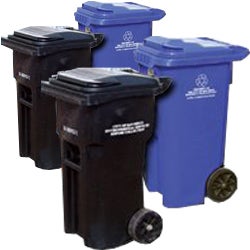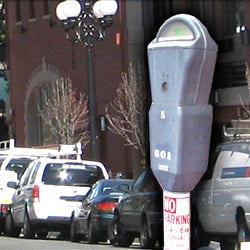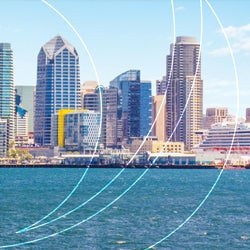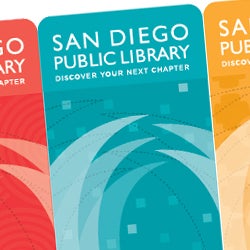Initiatives
Over the past several years, the City has taken an unprecedented number of steps aimed at reducing housing costs, increasing housing supply and streamlining the approval process. This site provides an overview of recent initiatives to streamline development processes and reduce costs for housing development. It highlights initiatives that have recently been adopted, describes proposed actions that are currently in progress, and discusses future reforms that are still in the early stages of development.
In Progress
Comprehensive Community Plan Updates - These are an ongoing component of the City Planning Department’s Work Program.
Build Better SD - This initiative will do away with old, inequitable planning policies that restrict incoming public infrastructure fees to a single community and instead restructure fees into a citywide funding program. It is aimed at expediting the construction and expansion of public infrastructure projects, such as libraries, fire stations and other public spaces.
Blueprint SD - This initiative will include revisions to the General Plan to incorporate the City’s climate action goals and SANDAG’s new vision for the region’s transportation system and provide a Citywide framework to guide future land use changes in each community. It will also include a programmatic environmental impact report that ensures Blueprint SD meets climate goals faster and delivers more sustainable communities.
Completed
2022
Housing Action Package - This package consists of amendments to City development regulations and property use to speed up housing production. Among the reforms, the amendments help streamline the process for building affordable and middle-income homes on City-owned sites, provide incentives to include more accessible housing for people with disabilities and provide incentives for multifamily housing developments to build homes with three or more bedrooms to ensure that families of all sizes have opportunities for housing.
2021
2021 Land Development Code Update - Among the 33 code updates, which regulate the development and use of properties, community gardens will now be allowed in designated Open Space parks, the process to install 5G fiber optic equipment will be faster and will provide communities more reliable access to internet connectivity, and changes to the code will incentivize developers to build larger child care facilities. The new regulations, codified in O-21416 and O-21417, will become effective in areas outside of the Coastal Zone on Feb. 26, 2022.
Parks Master Plan - As communities grow and develop, the Parks Master Plan will reexamine the way the City defines and meets desired service levels to deliver a diverse array of parks and recreation facilities to meet changing demographics.
2020 Land Development Code Update - Among the 44 items in this Land Development Code Update, applicants can turn ground floor commercial spaces into residential uses more quickly and adult day care facility regulations will now be defined in the City’s Municipal Code.
Comprehensive Update of CEQA Thresholds - A comprehensive update to the City’s Thresholds for Determining Significance under CEQA, to reflect changes in state law, case law and science, as well as current City regulation that reduce or avoid potential impacts. Click here for the link to the updated thresholds.
2020
Housing Legislation Code Update Package - The City of San Diego City Planning Department made an update to the City’s Land Development Code (LDC) known as the Housing Legislation Code Update Package. This package of amendments addresses California State housing law requirements, including several bills passed at the end of 2019. These include changes to State density bonus, homeless housing and accessory dwelling unit laws, along with several other miscellaneous housing laws. The Housing Legislation Code Package provides amendments to the LDC that are required to implement and comply with State law, as well as additional local amendments tailored to our specific local needs.
Housing Solutions - Housing Solutions is an optional affordable housing incentive program that will provide new affordable and market-rate housing near transit; preserve existing affordable rents; and establish a new way to fund neighborhood amenities. It will also set aside resources for investing in active transportation and park amenities within the City’s Communities of Concern.
Mobility Choices - Updated the City’s CEQA transportation analysis metrics and significance thresholds from level of service/vehicle delay-based metrics to vehicle miles traveled-based metrics, consistent with SB 743.
Moderate-Income Housing Density Bonus Program - Creates incentives for builders that provide housing for low- and moderate-income residents to help increase the housing supply for all income levels. It can be coupled with the Affordable Housing Density Bonus program approved in 2016.
Housing Inventory Annual Report - The 2020 Housing Inventory Annual Report presents the progress made in 2019 towards regional housing production goals and discusses recent City initiatives and those in development to help incentivize more production in the future.
12th Update to the Land Development Code, Phase 2 - Code amendments include permitting Homeless Facilities in commercial zones within the Coastal Overlay Zone and allowing continuing care retirement communities to be permitted in zones that allow multifamily housing and as a conditional use in single-family residential zones. Also included in the update:
- Utilized Development Permit - Allows development on premises with a Utilized Development Permit. This will allow religious properties to utilize parking lots for affordable housing.
- Underground Parking for Multifamily Housing - Allows a ministerial process for grading permits for the undergrounding of parking in multifamily developments.
2019
12th Update to the Land Development Code, Phase 1 - Code amendments including by-right approval of Permanent Supportive Housing (PSH) and transitional housing and increases to the amount of permitted residential land uses in the Downtown employment overlay zone. Also included in the update:
- Commercial Flexibility - Flexibility to allow interim ground floor residential or office where commercial retail is typically required through a Conditional Use Permit.
- PSH and Transitional Housing Fees – Waives Development Impact Fees for Permanent Supportive Housing and Transitional Housing.
Housing Inventory Annual Report - The 2019 Housing Inventory Annual Report presents the progress made in 2018 towards regional housing production goals and discusses recent City initiatives and those in development to help incentivize more production in the future.
Transit Priority Area Parking Regulations for Multifamily Residential - Parking requirements that allow for parking reductions within Transit Priority Areas, thereby providing for better development potential and utilization of developable land to build housing units.
New Mixed-Use Zoning Packages - Created new citywide mixed-use zones which locate housing in closer proximity to employers, and foster transit-oriented development.
Live/Work Quarters Amendments - Expanded the application of current Live/Work Ordinance to additional zones to facilitate more housing opportunities near the workplace and revisions to the regulations to provide housing alternatives within the workspace.
City of San Diego Community Action Plan on Homelessness - One of the key strategies of the Plan, adopted by the City Council in Oct. 2019, is to increase the production of and access to permanent solutions. This includes identifying low-income and affordable housing options to increase opportunities to provide greater access to permanent housing.
2018
“Live/Work Quarter” Regulations - Modifications to regulations to allow more housing in commercial areas.
Affordable Housing Density Bonus - Incentivizes the development of affordable housing through:
- Increased Density Bonus
- Increased Number of Development Incentives
- Reduced Permit Process
- Reduced Parking Ratio
- Off-Site Affordable Dwelling Units
Streamlined Environmental Review - Allows a streamlined environmental review process for projects consistent with the densities established by existing zoning, community plan or general plan policies for which an Environmental Impact Report (EIR) was certified.
Affordable Housing Regulations - Additional incentives that the City has implemented include allowing developers to construct additional density above the maximum allowed under the density bonus regulations, totaling 50%, if they are not requesting any waiver/incentive; allowing micro-unit projects to qualify for a 100% density bonus; in addition to other streamlining.
11th Comprehensive Update to the Land Development Code - Forty-six code amendments to help improve the permit processes including streamlining and flexibility related to Historical Resource Regulations, Lot Consolidation, Paleontological Mitigation, Live/Work Quarters, and a reduction in parking within Transit Priority Areas (TPA).
Housing Inventory Annual Report - Provides information related to the City’s housing supply, affordability, and an overview of recent actions to increase housing production.
Deposit Account Streamlining - Elimination of 62 deposit accounts to ten to streamline the submittal process.
2017
Accessory Dwelling Units (ADU) - Exceeded state requirements that included a reduced process, zoning flexibility and reduced water and sewers fees for ADUs. Included additional incentives to provide an alternate source of affordable housing, including a Junior Accessory Dwelling Unit (JADU) category. Development Impact Fees associated with ADU construction have since been waived.
Affordable/Infill and Sustainable Expedite - Includes Promise Zone Expedite - The ordinance was amended to shorten the discretionary review process, allow more deviations to qualify for the reduced process, expand the eligibility to capture more infill projects and establish clear citywide policy. Council Policy 600-27 was also amended to reflect the two expedite programs. Development within promise zones receive expedited discretionary and ministerial permit processing for all eligible building projects.
Fee Reform - Consolidation of different development fee types.
Storm Water – Alternative Compliance Program Phase 1 - Provides Offsite Storm Water Alternative Compliance as an option for Priority Development Projects in lieu of implementing onsite structural best management practices to comply with pollutant control and hydromodification management requirements.
2016
Development Impact Fee (DIF) Deferral - Allows the City to defer the DIF payment for a maximum deferral of up to two years to encourage the initiation of housing development.
Community Plan Implementation Density Incentive - Creates density incentives for redevelopment of six-unit apartment complexes with an interior parking lot to pedestrian-friendly development consistent with the community plan.
10th Comprehensive Update to the Land Development Code - To improve the permit process, 40 San Diego Municipal Code amendments were enacted including streamlining public noticing, a new exemption from the requirement to obtain a Coastal Development Permit for certain specific single dwelling unit development, facilitating shared parking, and reducing steps for non-historic development more than 45 years old.
Climate Action Plan (CAP) Checklist - Adoption of the CAP along with the CAP Checklist and Greenhouse Gas (GHG) Thresholds, has provided a streamlined California Environmental Quality Act (CEQA) review for GHG reductions for projects.
Shared Parking - Reduces the process required for shared parking agreements via agreements with neighboring properties and potentially allow greater development density.
2015
Development Permit Flexibility - Provides additional flexibility (extension of time) to complete housing project construction under approved development permits.
Application of New Regulations - Allows projects to have the benefit of new regulations (adopted after the permit effective date) without a need to amend their development permit when the resulting development is in substantial conformance with the permit.
9th Comprehensive Update to the Land Development Code - Fifty-seven code amendments to improve the permit process including streamlining to implement the City’s Economic Development Strategy, efficiencies in processing environmental permits for certain properties more than 45 years old, Accessory Dwelling Unit regulations to remove constraints and allow them through ministerial processing.
Small Lot Subdivision Ordinance - Allows for the subdivision of multifamily zoned land, consistent with the density of the community plan, for construction of single-family homes. It creates an opportunity for greater homeownership in older neighborhoods with small lot patterns.
Concurrent Processing (2015/2016) - Provides faster review opportunities by allowing for the concurrent processing of ministerial permits during the discretionary review process.























